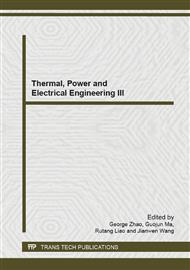p.1567
p.1575
p.1582
p.1588
p.1592
p.1597
p.1602
p.1612
p.1620
A Study on Quantitative Methodology to Assess Cyber Security Risk of SCADA Systems
Abstract:
This paper aims to identify and clarify the cyber security risks and their interaction with the power system in Smart Grid. The SCADA system and other communication networks interact with the power system on a real time basis, so it is important to understand the interaction between two layers to protect the power system from potential cyber threats. In this study, the optimal power flow (OPF) and Power Flow Tracing are used to assess the interaction between the SCADA network and the power system. Through OPF and Power Flow Tracing based analysis, the physical and economic impacts from potential cyber threats are assessed, and thereby the quantitative risks are measured in a monetary unit.
Info:
Periodical:
Pages:
1602-1611
Citation:
Online since:
June 2014
Authors:
Price:
Сopyright:
© 2014 Trans Tech Publications Ltd. All Rights Reserved
Share:
Citation:


